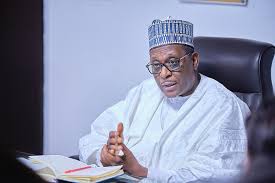
Nigeria’s Coordinating Minister of Health and Social Welfare, Muhammad Pate, has called for a shared national commitment to make health and education top priorities, warning that the country’s long-term progress depends on collective accountability and political will across all sectors.
Pate, a professor made the call at a High-Level Media Advocacy Dialogue in Abuja on Thursday, jointly organised by the Federal Ministry of Health and Social Welfare, the International Society of Media in Public Health (ISMPH) and the Engender Health Consortium.
He said Nigeria’s poor health outcomes are not due to lack of technical expertise but to weak prioritisation and absence of unified political will.
“For too long, we’ve self-criticised without building a national consensus to fix it,” he said.
“Health is not just a technical issue; it’s a political choice. The way we allocate resources reflects our collective priorities.”
He highlighted that recent government reforms such as the removal of fuel subsidies, adjustments to tax policies, and tighter monetary control have begun to expand Nigeria’s revenue base, which is crucial for financing healthcare.
Pate emphasised that rebuilding Nigeria’s health system requires political determination, efficient governance, and citizen responsibility.
He noted that the federal government has recruited over 20,000 doctors, nurses, pharmacists, and laboratory scientists in the past two years, with efforts underway to strengthen both primary and tertiary healthcare facilities.
He cited progress in reducing maternal deaths in several local government areas by 12 per cent, attributing it to improved primary healthcare access, emergency care, and affordability.



